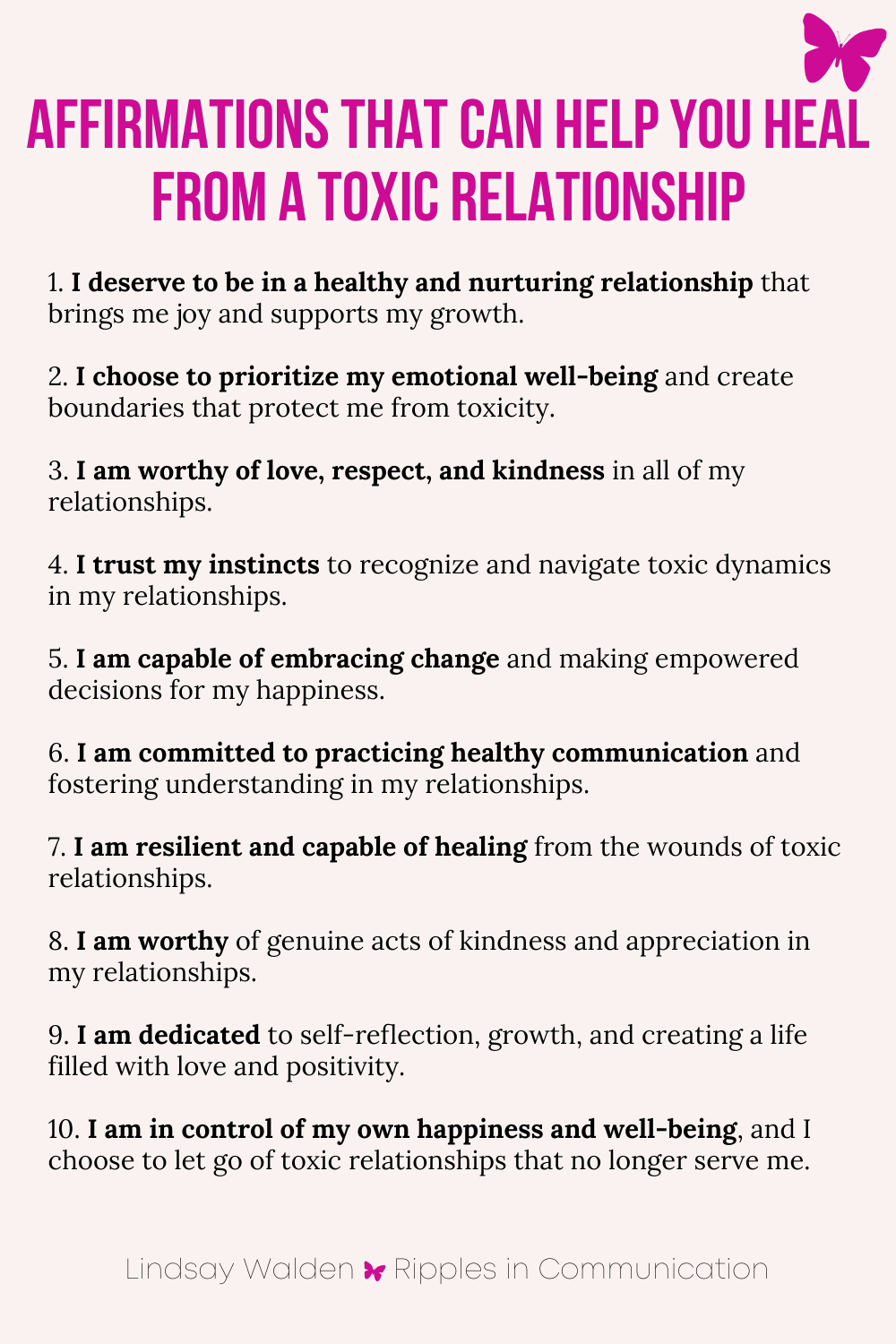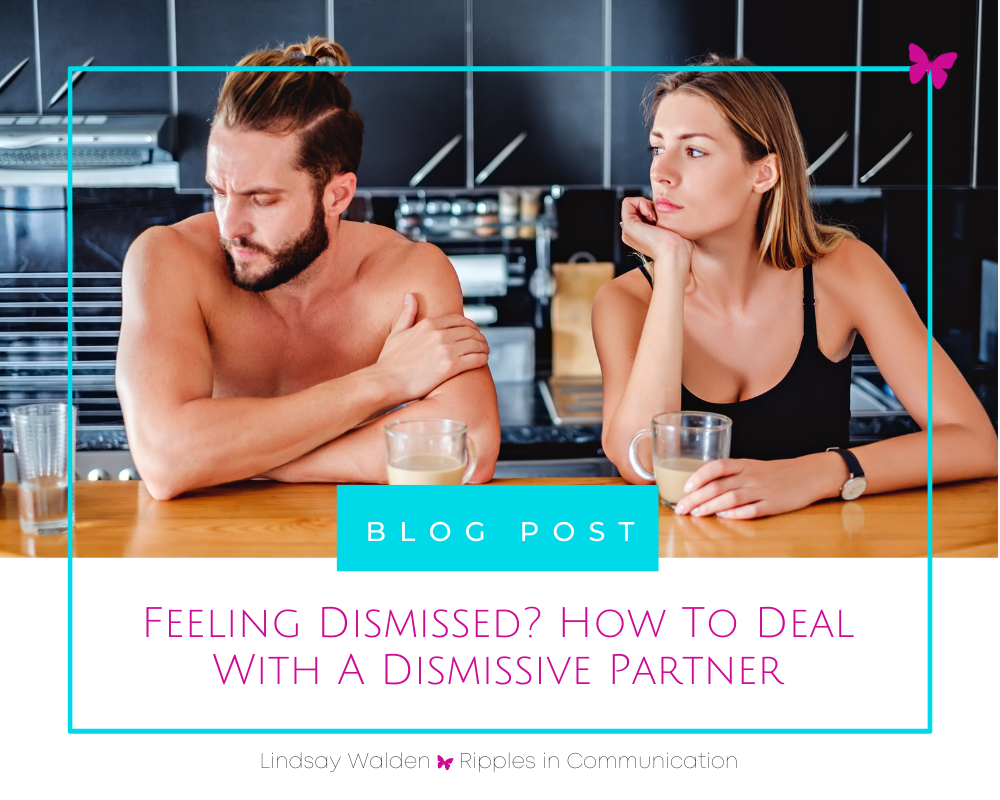Navigating Toxic Relationships: A Journey Of Personal Growth
Relationships are complex, and it can be challenging to determine whether your relationship is healthy or toxic. While some signs of toxicity may be obvious, many toxic dynamics develop gradually over time. In this blog post, we will delve into the intricacies of toxic relationships and explore the importance of self-assessment in identifying toxic elements within your partnership.
Have you gotten my FREE Relationship Communication Guide yet? Start building an authentic, conscious, and thriving relationship with your partner TODAY. Say goodbye to misunderstandings, conflicts, and missed opportunities for a deeper connection. These are the same tips and practical advice I give to my clients every day. With this guide, you'll be equipped to navigate any communication challenge and build a strong and fulfilling bond with your partner. Click the button below to enter your email address and I will send the guide to your inbox right away!
Discover the signs of toxicity and embark on a journey of self-assessment and change in relationships. Learn how to navigate toxic dynamics for emotional well-being and personal growth.
The Trap of Futuristic Thinking
One common pitfall in toxic relationships is the tendency to base contentment and happiness on future outcomes. If you find yourself constantly hoping that things will improve in the future, you may lose sight of the present reality. While it's natural to desire growth and progress, fixating on what is lacking can hinder your ability to work on the current status of your relationship. It is crucial to balance future aspirations with a focus on present circumstances.
Compatibility and Healthy Communication
When evaluating your relationship for signs of toxicity, it is helpful to reflect on the aspects of compatibility and communication. Consider the ways in which you and your partner connect positively, using healthy communication strategies. Are you able to resolve conflicts effectively, express your needs and desires, and listen to each other? Assessing these aspects can provide valuable insights into the overall health of your relationship.
Recognizing Acts of Kindness
An important aspect to consider when examining your relationship is how frequently you acknowledge kind and thoughtful actions from your partner. Do you find it difficult to recall moments of appreciation or positive gestures? Reflecting on this can reveal potential imbalances or negative patterns within your relationship. While these observations may be uncomfortable, they are crucial for an honest evaluation.
Unlock the power of the Four Agreements in healing toxic relationships. Evaluate your emotional well-being, embrace self-reflection, and make empowered decisions for happiness and well-being.
The Four Agreements: A Framework for Healthy Communication
To gain further clarity on the toxicity of your relationship, it can be helpful to adopt the framework of the "Four Agreements" by Miguel Ruiz as a guide for healthy communication. By practicing these agreements (be impeccable with your word, don't take anything personally, don't make assumptions, and always do your best), you can foster open and respectful dialogue. If you haven't already, consider downloading my relationship communication guide that offers strategies to reset and improve your communication patterns.
Differentiating Between Good Elements and a Healthy Relationship
It's important to acknowledge that a relationship may possess positive elements without necessarily being healthy. Recognizing and appreciating these positive aspects is valuable, but it is equally important to assess the overall balance and well-being of the partnership. Reflect on whether your relationship aligns with your emotional needs, desires, and personal growth. Remember that you deserve to be with someone who truly wants to be with you and supports your well-being.
Honest Self-Reflection and Making Decisions
Engage in honest conversations with yourself to determine if staying in your relationship is the healthiest choice for you. Self-reflection is a powerful tool for gaining clarity and understanding your emotions. Assess whether your relationship fosters personal growth, emotional well-being, and mutual respect. It is crucial not to hold onto false hopes and understand that love alone may not conquer all relationship struggles.
Embracing Curiosity and Making Changes
Approach your relationship with curiosity and an openness to change. If you recognize toxic elements within your partnership, consider initiating a process of transformation. Communicate your concerns with your partner, seek couples therapy, or explore personal growth opportunities. However, it is equally important to recognize when a relationship is no longer a good fit for you. Prioritize your well-being and make decisions that align with your happiness and growth.
Identifying toxicity within a relationship requires self-assessment, honest reflection, and the willingness to confront uncomfortable truths. While some signs of toxicity may be obvious, many toxic dynamics develop gradually over time. By evaluating compatibility, communication patterns, acts of kindness, and the overall balance of your relationship, you can gain a clearer understanding of whether your relationship is toxic. Remember that toxicity can have a detrimental impact on your emotional well-being and personal growth.
While it's important to acknowledge the positive elements within your relationship, it doesn't automatically make it healthy. Your happiness and overall health should be a priority. Engage in open and honest conversations with yourself to determine if staying in the relationship aligns with your values and needs.
If you find yourself in a toxic relationship, don't be afraid to initiate change. Embrace curiosity and be open to making necessary adjustments. This might involve seeking professional help, such as couples therapy, to address underlying issues and improve communication. Alternatively, it could mean making the difficult decision to leave the relationship in order to prioritize your own well-being.
Remember, you deserve to be in a relationship where you are valued, respected, and supported. Don't settle for less than what you deserve. Take the time to assess your relationship, be honest with yourself, and make choices that lead to a healthier and happier future.
In the end, finding clarity and taking action may be challenging, but it is an essential step toward creating a fulfilling and nurturing relationship or embarking on a journey of self-discovery and personal growth. Trust your instincts, listen to your inner voice, and make choices that empower you to live a life filled with love, respect, and positivity.
If you're struggling to address the issue on your own, it may be helpful to seek outside help. This could be in the form of couples counseling or individual therapy, or even just talking to a trusted friend or family member. A neutral third party can help you both see things from a different perspective and find solutions that work for both of you.
I am a licensed therapist that specializes in helping couples get to the root of why the relationship is suffering and helping couples build a healthy bridge back to being the loving, thriving couple they want to be. DOWNLOAD my free Relationship Communication Guide to take these steps even further.
Evaluate the signs of toxicity in your relationship and cultivate healthy communication for a toxic-free dynamic. Explore the journey of self-reflection and change for a harmonious and fulfilling partnership.







